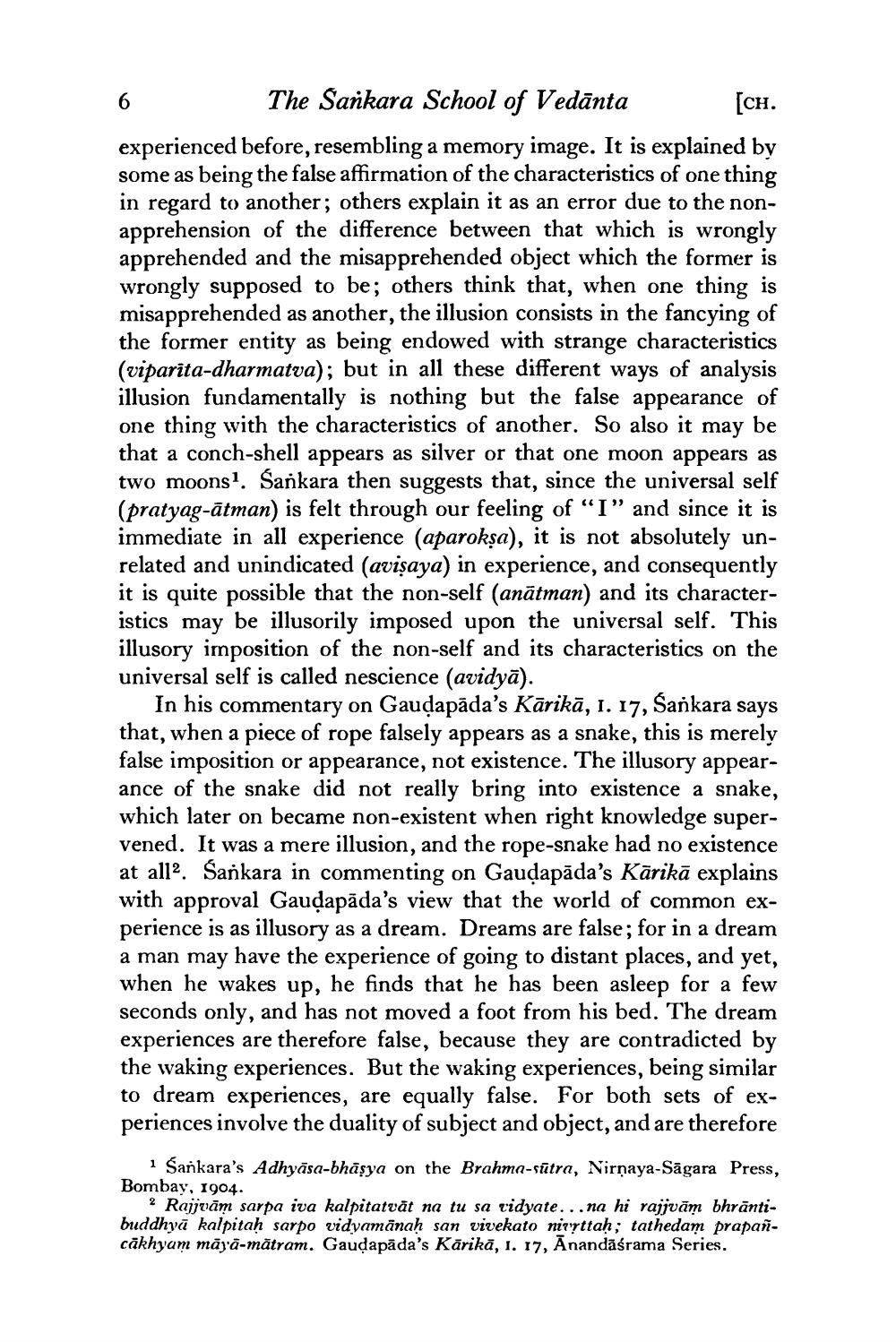________________
The Sankara School of Vedanta
[CH.
experienced before, resembling a memory image. It is explained by some as being the false affirmation of the characteristics of one thing in regard to another; others explain it as an error due to the nonapprehension of the difference between that which is wrongly apprehended and the misapprehended object which the former is wrongly supposed to be; others think that, when one thing is misapprehended as another, the illusion consists in the fancying of the former entity as being endowed with strange characteristics (viparita-dharmatva); but in all these different ways of analysis illusion fundamentally is nothing but the false appearance of one thing with the characteristics of another. So also it may be that a conch-shell appears as silver or that one moon appears as two moons1. Sankara then suggests that, since the universal self (pratyag-atman) is felt through our feeling of "I" and since it is immediate in all experience (aparokṣa), it is not absolutely unrelated and unindicated (aviṣaya) in experience, and consequently it is quite possible that the non-self (anātman) and its characteristics may be illusorily imposed upon the universal self. This illusory imposition of the non-self and its characteristics on the universal self is called nescience (avidyā). In his commentary on Gauḍapada's Kārikā, I. 17, Sankara says that, when a piece of rope falsely appears as a snake, this is merely false imposition or appearance, not existence. The illusory appearance of the snake did not really bring into existence a snake, which later on became non-existent when right knowledge supervened. It was a mere illusion, and the rope-snake had no existence at all2. Sankara in commenting on Gauḍapāda's Kārikā explains with approval Gauḍapada's view that the world of common experience is as illusory as a dream. Dreams are false; for in a dream a man may have the experience of going to distant places, and yet, when he wakes up, he finds that he has been asleep for a few seconds only, and has not moved a foot from his bed. The dream experiences are therefore false, because they are contradicted by the waking experiences. But the waking experiences, being similar to dream experiences, are equally false. For both sets of experiences involve the duality of subject and object, and are therefore
6
1 Sankara's Adhyāsa-bhāṣya on the Brahma-sūtra, Nirnaya-Sagara Press, Bombay, 1904.
2 Rajjvām sarpa iva kalpitatvat na tu sa vidyate...na hi rajjvām bhrāntibuddhyā kalpitaḥ sarpo vidyamanaḥ san vivekato nivrttaḥ; tathedam prapancākhyam māyā-matram. Gauḍapada's Kārikā, 1. 17, Ānandāśrama Series.




